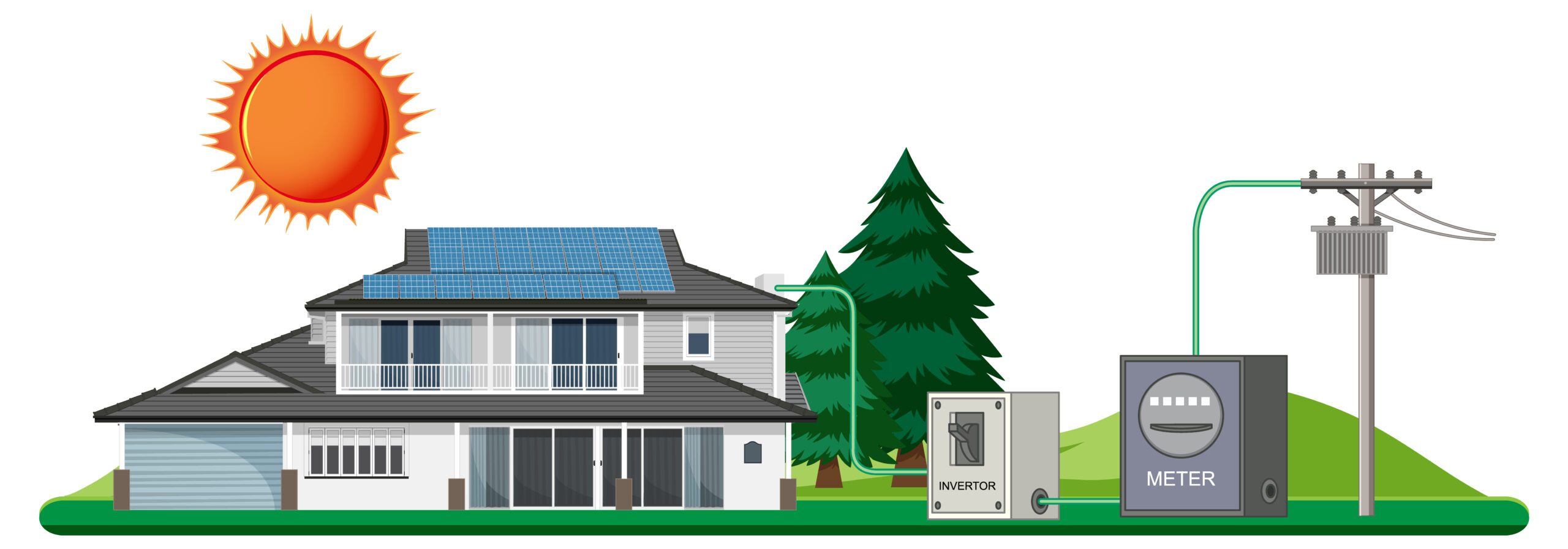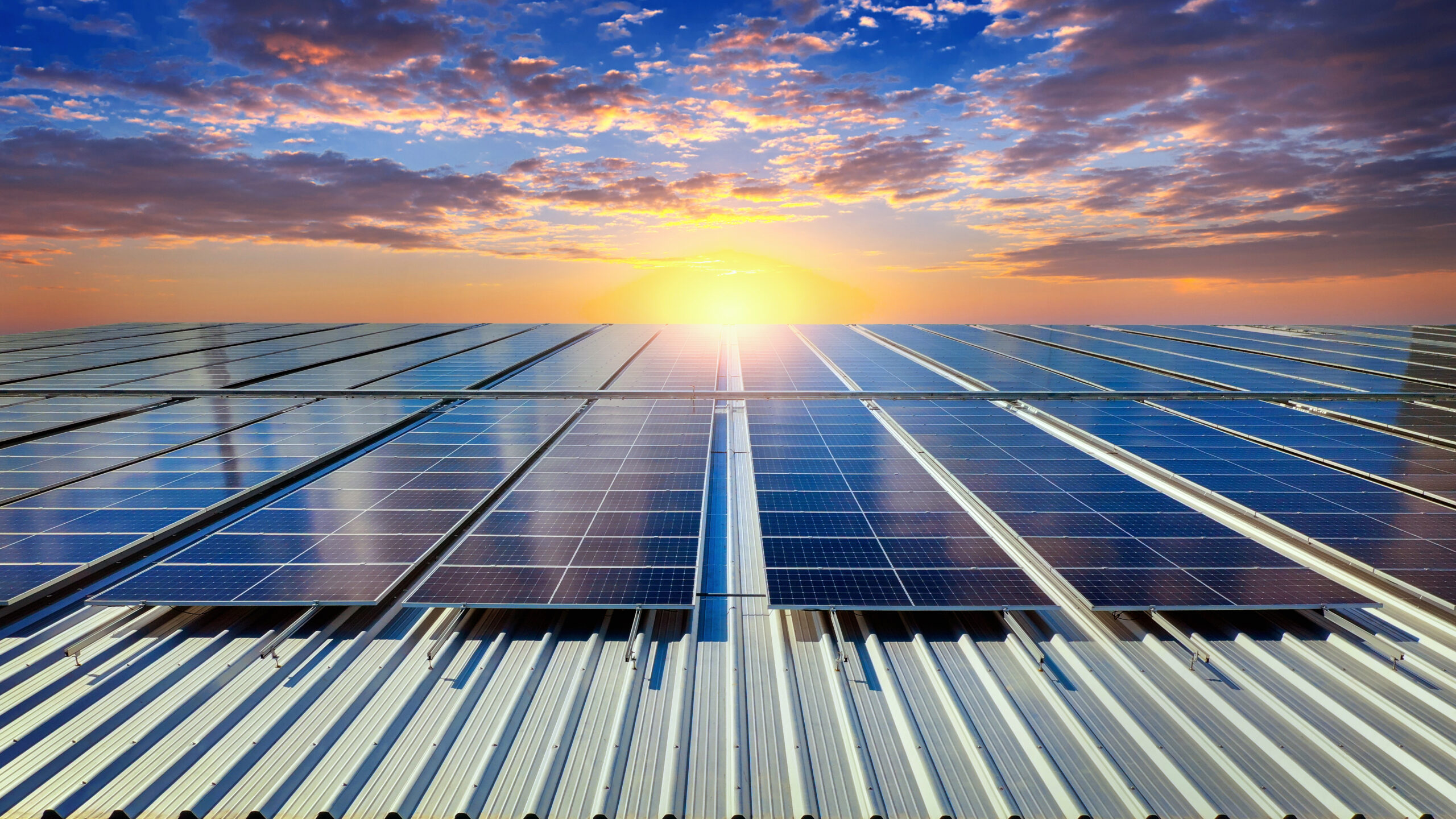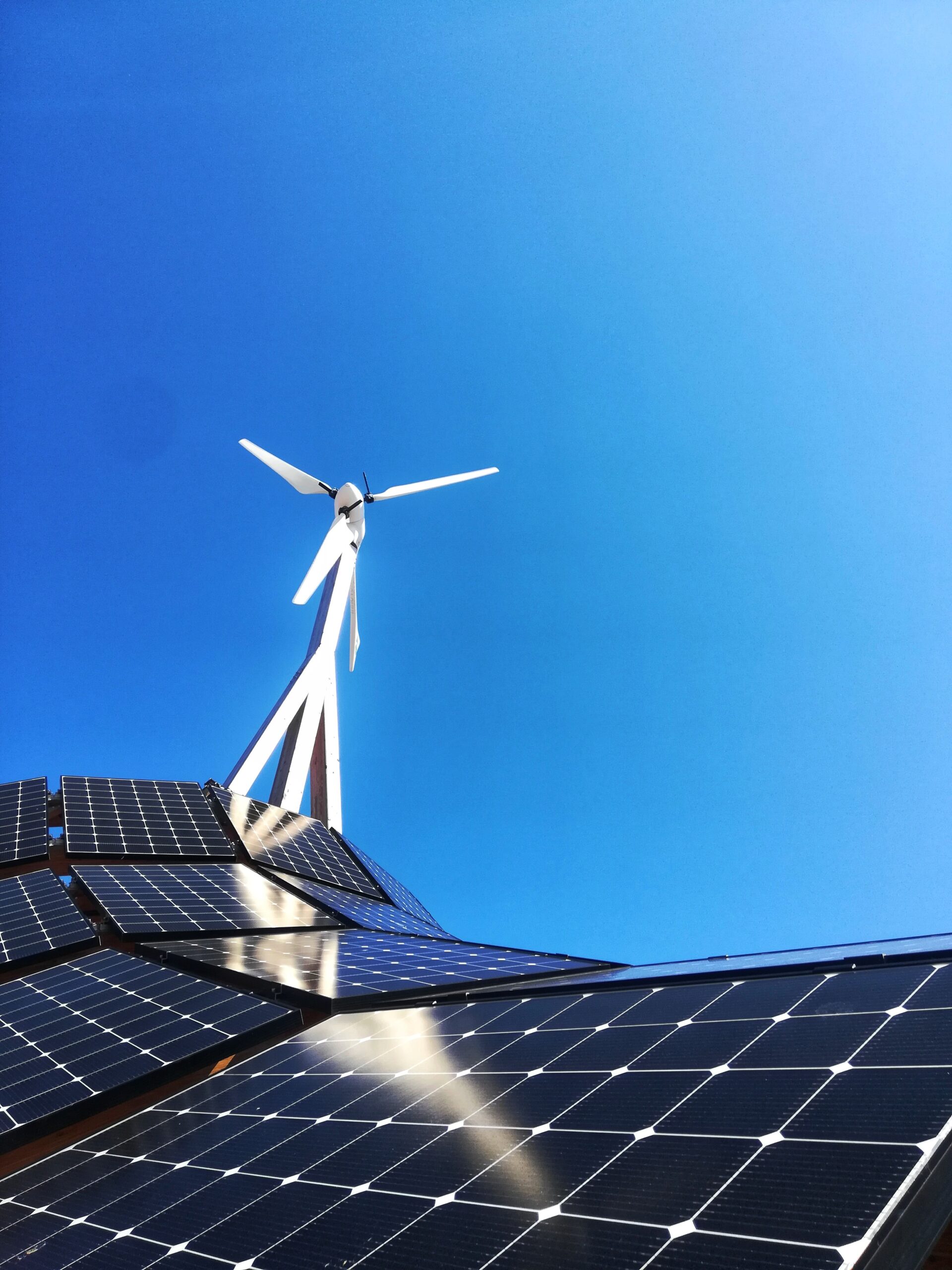Solar panels are an important component of a solar energy system, but they can’t do their job alone. In order to convert the direct current (DC) energy generated by solar panels into alternating current (AC) energy that can be used to power your home or business, you need a solar panel inverter.
In this article, we’ll explore the basics of solar panel inverters, including how they work, the different types of inverters available, and how to choose the right one for your solar energy system.
How Solar Panel Inverters Work
A solar panel inverter is a device that converts the DC energy generated by solar panels into AC energy that can be used to power your home or business. This is necessary because most appliances and electronics in our homes and businesses run on AC power.
There are two main types of solar panel inverters: string inverters and microinverters. String inverters are the most common type of inverter and are used in larger solar energy systems. They are typically mounted on a wall or other surface near the solar panels and convert the DC energy generated by a string of solar panels into AC energy.

Microinverters, on the other hand, are installed on each individual solar panel and convert the DC energy generated by each panel into AC energy. This allows for more flexibility in system design and can help to increase overall system efficiency.
Types of Solar Panel Inverters
In addition to string and microinverters, there are a few other types of solar panel inverters available:
- To ensure proper installation and maintenance of your system,
- it is recommended that you work with a reputable and experienced installer. Additionally,
- it is important to regularly monitor the performance of your system to ensure optimal functioning
Choosing the Right Solar Panel Inverter
Choosing the right solar panel inverter for your system is important to ensure that your system is efficient and effective. Some factors to consider when choosing an inverter include:
- System size: The size of your solar energy system will determine the size and type of inverter you need. Larger systems typically require string or central inverters, while smaller systems can use microinverters.
- Efficiency: Inverter efficiency is an important factor to consider, as it can affect the overall efficiency of your solar energy system. Look for inverters with high-efficiency ratings.
- Warranty: Solar panel inverters typically come with warranties ranging from 5 to 25 years. Consider the length and coverage of the warranty when choosing an inverter.
- Price: Solar panel inverters can be a significant cost in a solar energy system, so it’s important to choose one that fits within your budget.
Maintaining Your Solar Panel Inverter
Like any other component of your solar energy system, your solar panel inverter requires maintenance to ensure it continues to function properly. Some tips for maintaining your inverter include:
- Keeping it clean and free of debris.
- Checking the connections regularly to ensure they are secure.
- Monitoring the system performance regularly to ensure the inverter is functioning properly.
In conclusion, a solar panel inverter is a critical component of a solar energy system that converts the DC energy generated by solar panels into AC energy that can be used to power your home or business. By understanding how solar panel inverters work, the different types of inverters available, and how to choose the right one for your
the system, you can ensure that your solar energy system is efficient and effective. Remember to consider factors such as system size, efficiency, warranty, and price when choosing a solar panel inverter, and to maintain it regularly to ensure it continues to function properly.
If you’re interested in installing a solar energy system, it’s important to work with a reputable and experienced installer who can help you design and install a system that meets your needs and budget. With the right solar energy system and solar panel inverter, you can enjoy the benefits of clean, renewable energy while reducing your carbon footprint and saving money on your energy bills.

When selecting a solar panel inverter, it’s important to consider the type of inverter you need based on your solar energy system. There are three main types of solar panel inverters: string inverters, microinverters, and power optimizers.
Type of Solar Panel Inverters:
- String Inverters: The Most Common Inverter for Solar Energy Systems
- Microinverters: Optimizing Output for Systems with Shading or Panels Facing Different Directions
- Power Optimizers: Improving Performance of Solar Energy System
Considerations When Choosing a Solar Panel Inverter:
- Size and Efficiency of the Inverter: Matching the Size of Your Solar Energy System
- Warranty and Price: Looking at Overall Cost and Extended Warranty Options
- Maintenance: Regular Monitoring, Cleaning, and Repairs or Upgrades

Why String Inverters Are the Most Common Type of Inverter
Understanding Microinverters: Optimizing Output for Difficult Solar Panel Setups
Power Optimizers: What They Are and How They Improve Your Solar Energy System
Choosing the Right Solar Panel Inverter for Your Solar Energy System: A Comprehensive Guide
Maximizing the Efficiency of Your Solar Energy System with the Right Inverter
The Importance of Inverter Maintenance for Your Solar Energy System
What to Look for in a Solar Panel Inverter Warranty
The Cost of Solar Panel Inverters: What You Should Expect to Pay
The Pros and Cons of Different Types of Solar Panel Inverters
Whether
When choosing between a string inverter, microinverter, or power optimizer, make sure to consider the size, efficiency, warranty, and price of the inverter. Work with a reputable and experienced installer to ensure proper installation and maintenance of your system. Additionally, regularly monitor your system’s performance to ensure optimal functionality.
With the right solar panel inverter, you can take advantage of the clean, renewable energy provided by the sun and reduce your reliance on fossil fuels. By investing in a high-quality inverter and maintaining your solar energy system properly, you can enjoy the benefits of sustainable energy for years to come.
